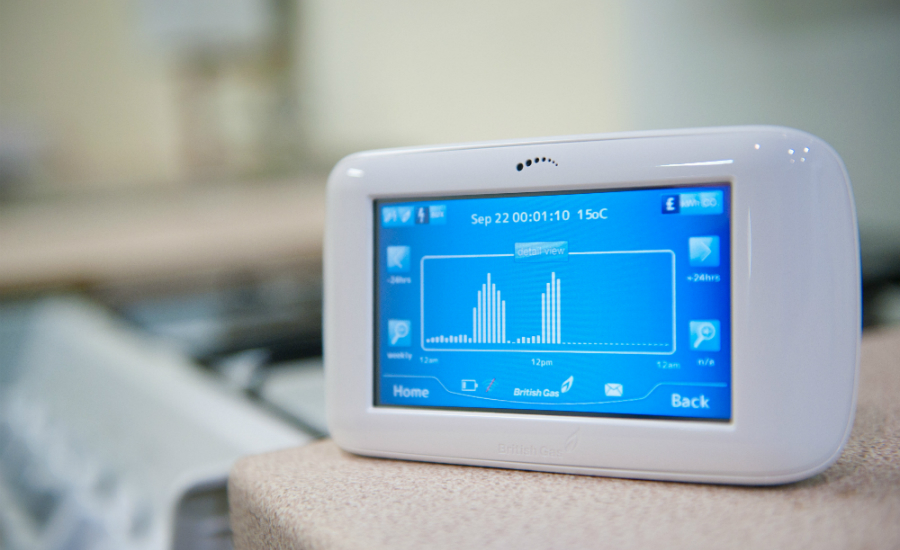What is the difference between smart meters and energy monitors?
There’s something about calculating energy use, which seems to be shrouded in mystery, something that implies it’s a dark art us mere mortals don’t have access to.
And whether it’s for environmental conservation or keeping an eye on the pennies, we all have more reasons to monitor our energy use than ever before.
To an extent, the ability to monitor energy usage has existed for a while via energy monitoring systems. These systems gather, collate and examine energy usage and use the information from devices that supply gas or electricity to provide readings for your energy supplier.
Energy monitors no longer industry standard
As of April this year though, the energy monitors are no longer the industry standard technology. While these devices have served an admirable purpose, the next evolution of metering is now upon us. Scheduled to begin in the latter half of 2015, a wide roll out of smart meters will supersede these systems in a bid to save people money and promise a more sustainable level of energy consumption. The roll out is being led by the Department of Energy & Climate Change, and is billed as being a major overhaul to our energy infrastructure – more than 50 million homes and businesses will be affected when suppliers begin to deliver the programme into domestic properties.
What do smart meters mean for you?
We know what you’re thinking. Energy companies aren’t known for keeping things simple and the thought of having another device fitted permanently into your home can be a confusing prospect. So what will it mean for you, and what’s different to the system you currently might have installed?
Well, right away, nothing is likely to change. The first places to be upgraded will be non-domestic sites, normally businesses or areas that use larger quantities of energy. The plan is that, by 2020, all homes will eventually have the devices installed, for free, by whoever it is that sends you your monthly bill.
The biggest fundamental difference in this new breed of smart meters is their ability to show, in real time, how much energy you’re using. Not only that, but they’ll show you what it’s costing. This is thanks to an “always on” functionality that will function through a new, custom “home area network” and communications hub.
Your ‘smart home’
You’ll likely be no stranger to the concept of living in a “smart home”, one where your fridge orders your weekly shop and your kettle starts to boil exactly two minutes before you’re due home from work. Smart meters are another step towards this revolution.
As for how you’ll be able to interact with the new technology, it’s expected you really will be able to get an app for everything. That includes real time monitoring of your energy, which you can access anywhere or any time. For traditionalists, you’ll still have access to a portable display device but controlling your home while on the move will soon be a very accessible and commonplace activity.
Furthermore, you’re probably going to benefit from an improved level of customer service from your energy supplier. Based on the readings your smart meter picks up, your energy supplier will then be able to advise you on more suitable tariffs, or advise where your energy usage might be disproportionate.
No more nasty surprises
What’s more, the new systems mean that you won’t be faced with any nasty surprises when you get your bill because your supplier won’t be relying upon estimates. It removes the mysticism and uncertainty about your energy readings from the equation. You’ll even be able to check how much any appliance is using at once. If you want to know how much a round of ironing costs in electricity, you’ll be able to find out. Wonder if your energy efficient bulbs are really that energy efficient? You can check that too. Everything about smart meters is designed to create a greater degree of control over what we’re using.
It’s a lot to take in and, if you’re curious to know more you can read about the programme here. While there’s some clever, complex technology behind it all, the benefits really are that simple and they considerably outweigh what’s offered by current technology.
Disclaimer
The contents of this article are for reference purposes only and do not constitute financial or legal advice. Independent financial or legal advice should be sought in relation to any specific matter. Articles are published by us without any knowledge or notice of the circumstances in which you or anyone else may use or rely on articles or any copy of the information, guidance or documents obtained from articles. We operate and publish articles without undertaking or accepting any duty of care or responsibility for articles or their contents, services or facilities. You undertake to rely on them entirely at your own risk, and without recourse to us. No assurance of the quality of articles is given or undertaken (whether as to accuracy, completeness, fitness for any purpose, conformance to any description or sample, or otherwise), or as to the timeliness of the publication.
Latest posts by Sally - Silversurfer's Editor (see all)
- British asparagus, pancetta and parmesan linguine with chive cream - February 20, 2025
- Easy ways to add more ‘interesting’ to your day - February 20, 2025
- River cruise like never before with Barrhead Travel and Riviera Travel - February 20, 2025
- Is it time to make National Service mandatory? - February 19, 2025
- Volunteer dog cuddlers wanted! - February 18, 2025



















